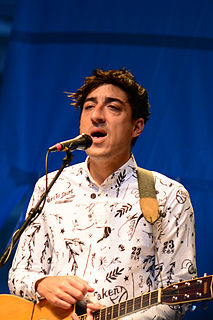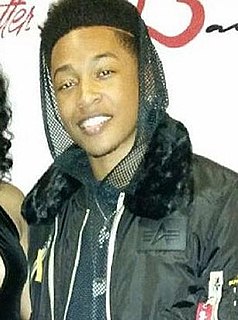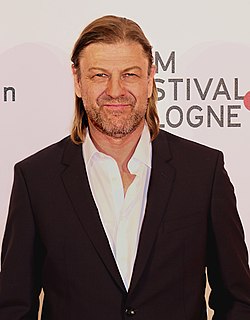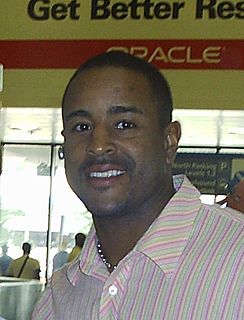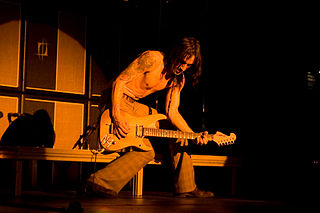A Quote by Malcolm Young
The bottom line is what we record is what we use. Once we feel we've got a good album, we stop at that. That's usually around 12 tracks.
Related Quotes
My music represents walking on train tracks in the middle of the woods, somewhere in the middle of nowhere. You walk down the tracks and you're walking every two tracks, and you've got your headphones on, and on both sides you've got forest, and in your rear is this long line of train tracks that's weaving through the woods. It's a very cool place, to walk along the train tracks because of the rhythm of walking every few feet through the woods. It's a good place to go dream.
The reason for backing tracks is to not veer off too far from the record and have what the fans actually want to hear. Artists use backing tracks just so they can stay close to the record and what the consumer heard for the first time. It's not to be confused with lip synching or anything like that cos that's not happening at all.
In theatre, once you've got the character and you've got things together, you can relax into it. Film has a different feel - you don't get that through line of not stopping. Theatre is like a snowball gathering momentum and getting bigger, whereas in film, it's a bit stop and start - but you do tend to adjust to that quite easily.
My dad used to do a lot of music when he was young, so he had an 8-track MiniDisc recorder, and when he realized that I was getting on with it, he brought it upstairs to my room and showed me how to record and how, once you finished eight tracks, you can cut it down to two and have another six tracks to play with.






